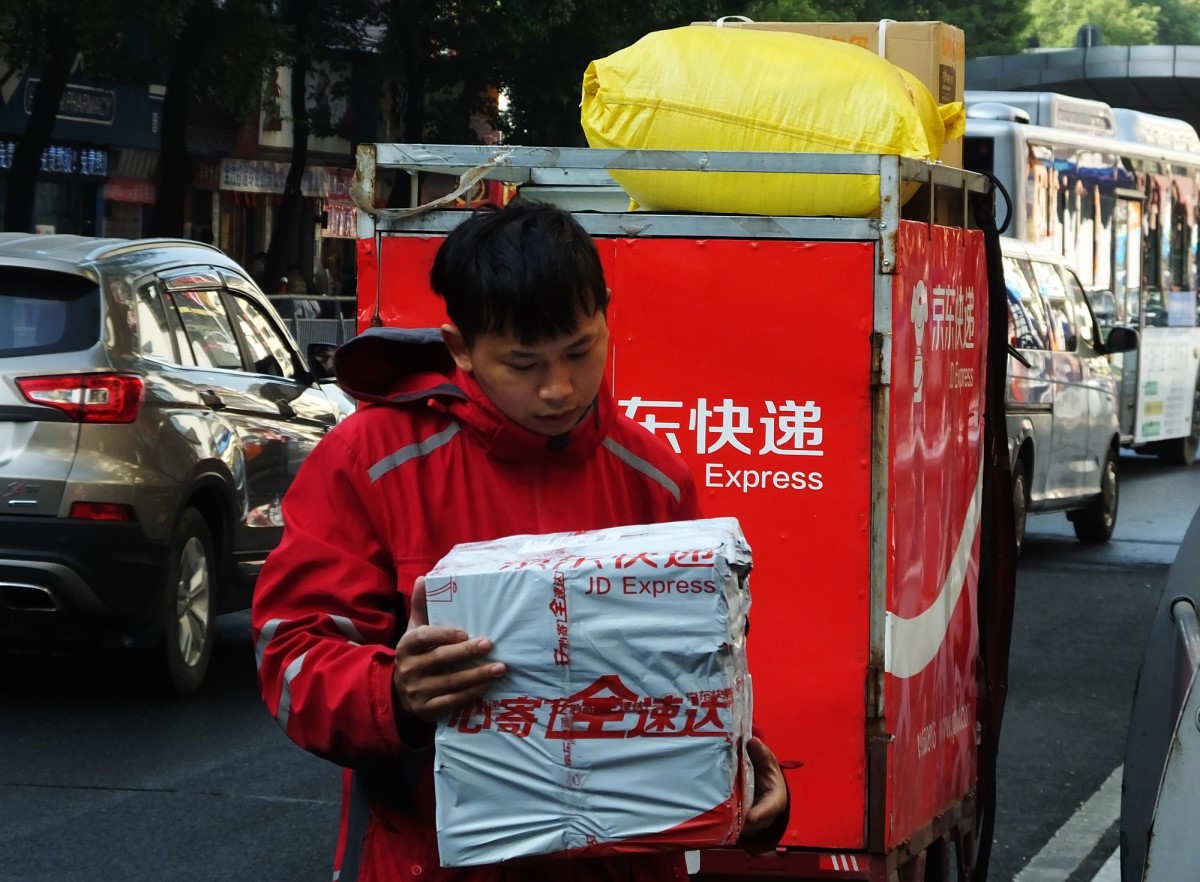On Singles Day, price wars mean some couriers earn less than 1 yuan per delivery
13 November 2021The yearly online shopping boom of Singles Day (11 November) usually sets new records in how much consumers spend, as they take advantage of heavily discounted goods. This year, a different record was set: strikes by couriers reached 136 compared to 31 in 2020.
Since early 2020, price wars have decreased wage security for parcel delivery workers. The Covid-19 pandemic affected the normal operations of distribution centres and delivery sites. Employers still had to pay rent, loans and wages. To recoup profits, delivery companies resorted to undercutting their competition with lower prices.

To offset the loss in profits from consumers, they paid their couriers less but also expected them to work more. In May 2020, a company in Henan expected its contractors to increase their delivery volume each month by 7 percent in June and 15 percent by October. Sites unable to meet hard delivery targets were fined 3 yuan for each order they didn’t manage to complete.
The fight for market share continued this year, when in March 2021, delivery company Best Express cut its fees for packages under 0.3 kg to 1.3 yuan. In response, its competitor J&T Express lowered its fees to 1.1 yuan. By April 2021, some J&T Express outlets were charging under 1 yuan for a delivery. The Zhejiang provincial government was forced to issue regulations banning deliveries at prices lower than cost.
Even so, couriers continue to feel the effect of price wars on their wages. The average amount they receive per delivery dropped from 1.44 to 0.95 yuan at a J&T Express branch in northeast China. Workers there reported a series of fee cuts for deliveries, with a fourth round of wage cuts this May. Some delivery drivers rejected a further attempt to reduce their wages to 0.8 yuan per delivery. But in other parts of the country, workers have had to accept these conditions.
Couriers have increasingly resorted to collective action in response to wage cuts. CLB’s Strike Map recorded just 3 strikes in February, rising to 28 in July and 30 in September. As companies encounter cash flow problems due to slashed profit margins, some of them end up not paying workers their wages. On 25 July, workers went on strike in Huangpu, Shanghai, to protest two months’ worth of unpaid wages.
Platforms have also resorted to finding ways to fine couriers as a way to retain more profits. These fines can reach more than 2,000 yuan per month. On 5 February, a courier in Wuhan, Hubei province, told the media that he and other workers were owed more than 1 million yuan in wages, but the site responded with a list of fines that came to roughly the same amount they were owed.
These conditions mean that more and more workers are leaving the industry, putting more pressure on those who stay. In 2020, the number of couriers employed reached almost 4 million. However, the turnover rate of delivery personnel rose to 33.1 percent, the highest out of all occupations. Though some enterprises have newly established trade unions, they fail to represent the real demands of workers. With price wars all too likely to continue, robust safeguards need to be in place and adequately enforced to ensure that couriers do not lose out.
